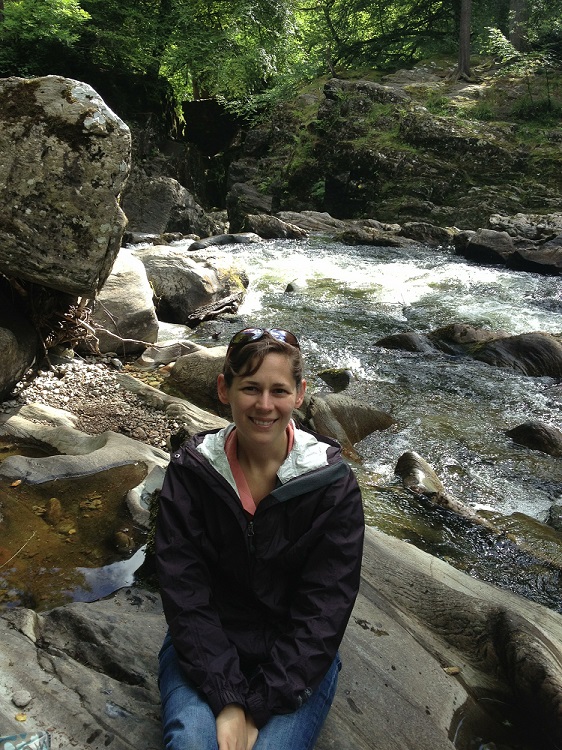
Amy Burgin, assistant professor and aquatic ecologist, will present "Linking Water Quality to a Changing Climate in Agricultural Landscapes: Implications of the 2012 Drought and 2013 Spring Floods" at 3:30 p.m., Oct. 22 in the Hardin Hall auditorium (room 107). The seminar is free and open to the public.
Modern agriculture is inextricably linked to declining surface water quality, which creates ecological and economic problems on local and continental scales. Agriculture is the primary source of reactive nitrogen (N) loading to aquatic ecosystems and combines with hydrology to control landscape N runoff. Future N loading, however, will also be determined by how these factors interact with climate change. Given the implications for water quality, it is critical to understand how intensive landscape management, hydrologic modification and a changing climate will interact. Drought-to-flood transitions, often referred to as "weather whiplash," can increase N loading to rivers. Specifically, the 2012 drought created N-enriched soil that combined with heavy spring rains in 2013, which caused regional flooding, efficient flushing of soil N and subsequent record-high surface water nitrate (NO3-) concentrations. In the Midwestern United States, as in many important agricultural regions, climate change is predicted to increase the frequency and severity of growing-season drought and more extreme spring rainfall events. Understanding feedbacks between climate change and agricultural practices is critical to the continued viability of agroecosystems and our ability to predict impacts to downstream ecosystems.
Burgin has a B.A. in biology and environmental science from Coe College and a Ph.D. in zoology and ecology from Michigan State University. After earning her Ph.D., Burgin moved to the Cary Institute of Ecosystem Studies in New York to complete postdoctoral work with Peter Groffman. Her project there focused on using sensors to measure environmental variables in riparian wetlands. Burgin was an assistant professor at Wright State University in Dayton, Ohio before joining UNL's School of Natural Resources in 2011.
More details at: http://go.unl.edu/m6kc